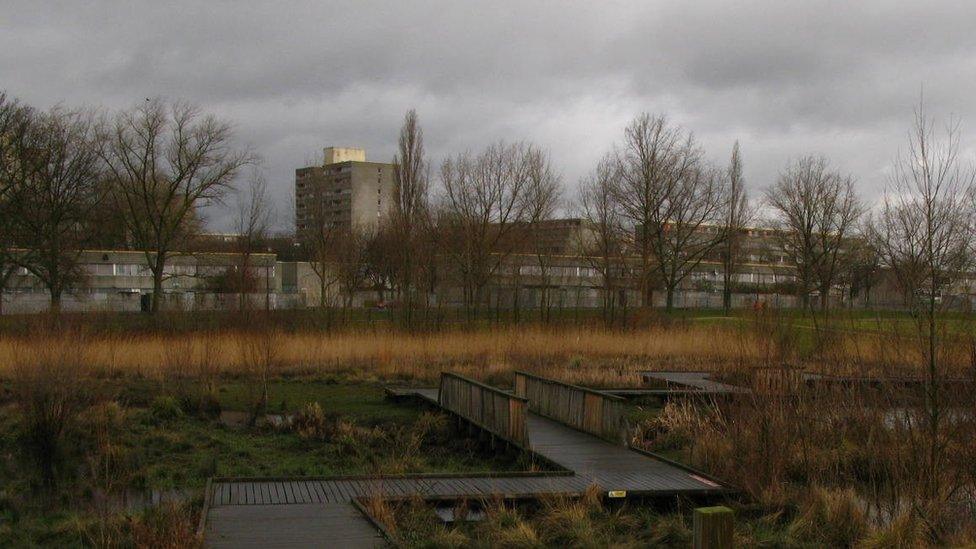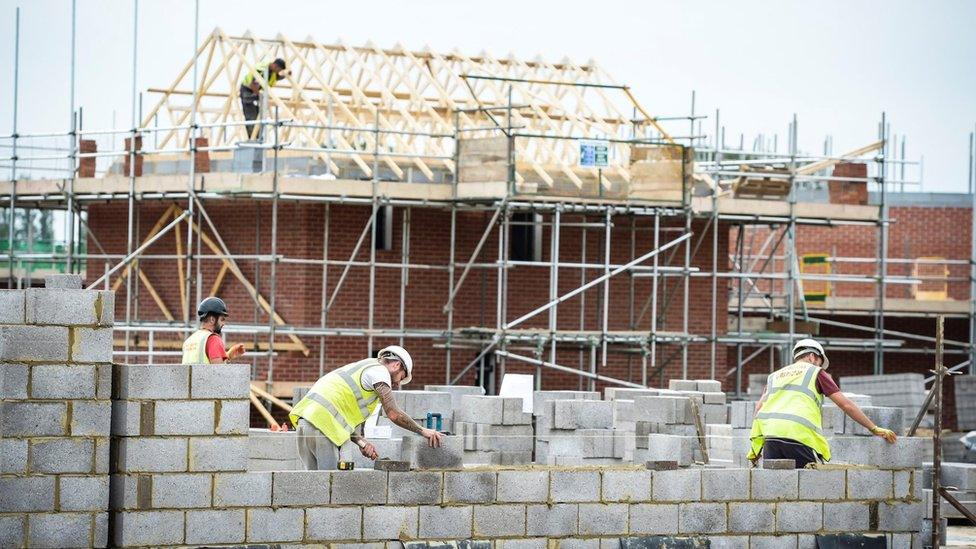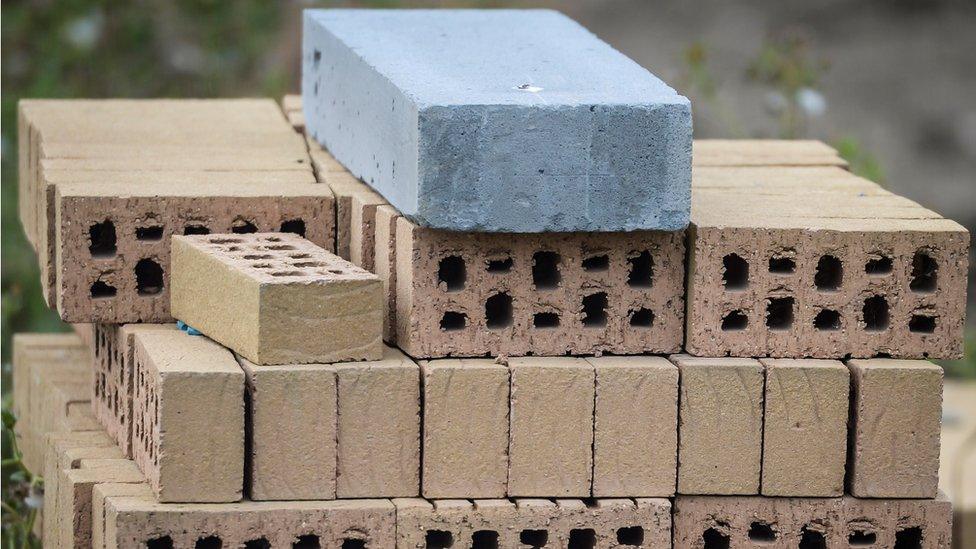PM 'will not hit' one million new homes target
- Published
- comments

Part of the Kidbrooke estate in southeast London, pictured in 2010
Theresa May put affordable housing at the heart of her "offer" to voters when she became prime minister.
The government's target is one million new homes by 2020; the argument being that more supply will bring down prices.
But the head of one of the UK's largest housebuilders, Berkeley Homes, says the target may be missed.
Radical change will be required to raise the current new-build rate above 170,000 per year, says Rob Perrins.
When I asked him if the target would be hit, his answer was emphatic.
"The answer is no, and surprisingly the answer is not due to planning," he said.
"There have been some very good reforms in planning over the past few years. [However] there are three reasons why they will not hit the target.
"Firstly, there is not enough land ready for development.
"Secondly, the UK has the highest property taxation in the world. And it acts as a disincentive to build and [for people to] move.
"And thirdly, I don't believe it is a top three political issue. And there is nothing more important for those under 30 than resolving the housing crisis," Mr Perrins added.
He said the government should take the issue as seriously as funding the National Health Service.
I interviewed Mr Perrins on the Kidbrooke estate in south-east London, where Berkeley Homes is building 4,500 new homes - 1,500 of which will be cheaper "affordable" homes.
The Kidbrooke estate is Britain's housing crisis in microcosm.
In the 1960s, the area was called the Ferrier Estate, a depressing jungle of pre-cast concrete that had fallen into disrepair.
In the 1990s, the local council, Greenwich - which Mr Perrins describes as one of the best when it comes to backing housing development - starting planning to redevelop the site.
It took 10 years to achieve a "development agreement" for the area, signed in 2007.

There are 800 "conditions" attached to the planning permission, from the type of building materials used, to the type of energy supply needed, to the type of facilities - such as a new school and health centre - that will be provided.
All might be very necessary, but all slow down the system.
The final houses will not be completed until 2030 - more than 30 years after the council first earmarked the area for redevelopment.
Slow progress
Building homes in the UK is a glacial business.
"The real issue in my view is getting land ready for development," Mr Perrins said.
"It is also about infrastructure. It's about electricity. It's about gas. It's about adjoining land permissions. It's about all the infrastructure issues around getting land ready, and there are an awful lot of those."
There are, of course, many other reasons put forward for the chronic shortage of new homes in the UK.
One is that housebuilders deliberately constrain supply to keep prices - and their profits - high.
The government is considering bringing in financial sanctions for housebuilders that do not develop land quickly enough.
That policy proposal could be fleshed out in a housing White Paper to be published before Christmas.
Mr Perrins dismissed this criticism of housebuilders, saying that companies like his were ready to build.
"We take huge risks getting sites like this [Kidbrooke] ready for development," he said.
"It's hugely complicated and we take those risks over a number of years.
"It also requires an awful lot of capital. Sites like this require over £200m of capital to bring them forward," he pointed out.
'Raise our game'
Returns need to be good to keep shareholders - which include many people's pension funds - satisfied.
"You mustn't bring in policies that are a disincentive to bringing house [building] forward," Mr Perrins said about any government action on fining companies that do not build new homes quickly enough.
"The government owns 40% of the land in the UK; they have enough of their own land to solve the housing crisis," he added.

With Number 10 and the Treasury both saying that new housebuilding is a priority, the government department responsible for delivering on housing policy - communities and local government - is under scrutiny.
The housing minister, Gavin Barwell, told me he "didn't agree" the one million new homes target by 2020 would definitely be missed.
"I certainly accept that at the current rate we are not going to hit it, so we need to raise our game," he said.
"But I think if you look in both our own past and if you look to some of our near neighbours, it is possible to build the number of homes we need in this country and it is my job, working with my boss Sajid Javid [the Communities and Local Government Secretary] to make sure we do it," the minister added.
"How?" is the question governments have been asked for decades, ever since the 1960s and 1970s when house building was a public and private affair, with 100,000 council houses a year adding to the number built by private developers.
"I think if there was a simple answer to that question, someone would have solved the problem already," Mr Barwell said.
"I think there is a combination of things. In some parts of the country we are not releasing enough land into the system.
"Then often people get planning permission, but it takes too long to turn that into a home - you can't live in a planning permission.
"We're too slow to get spades in the ground when we've got planning permission.
"I think we are too dependent on a small number of large housebuilders, so we need to broaden the range of the people who are doing the building.
"And then we need to make sure we've got enough people in the country who have got the skills to work in the industry," he said.
Mrs May has been careful to avoid too many targets in her short time as prime minister.
But she knows the "one million new homes by 2020" will be one for which voters can and will hold her accountable.
Expect a flurry of government activity - on simplifying planning rules and promoting local authority building - by the end of the year.